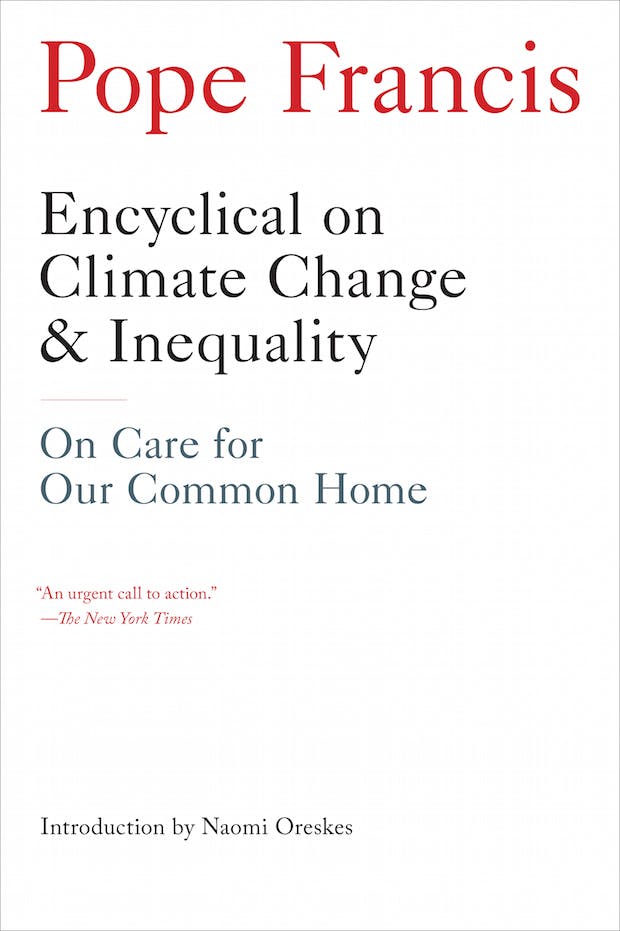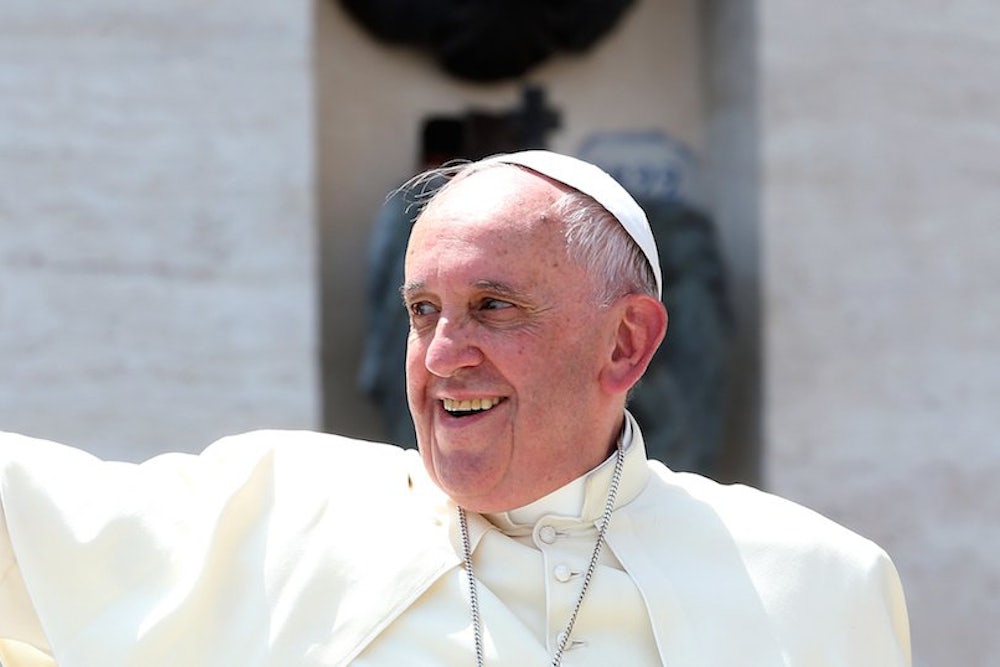In the last year, Melville House has accomplished two lightning-speed publishing projects: in December of 2014, the small press rushed out copies of the Senate Torture Report in just 19 days; today is the release of their edition of the Pope’s encyclical on climate change. By publishing standards, the speed with which they have brought the encyclical out is extraordinary: leaked on June 15 on the website of Italian magazine L’Espresso, less than two months later it is in print with an introduction by Naomi Oreskes, a history of science professor at Harvard. The process began the day that news of the leak broke. Melville House co-founders Dennis Johnson and Valerie Merians, who were traveling when they heard about the leak, immediately decided: “This should be published as a book.”

It’s “in the company’s DNA,” Dennis Johnson told me, to do these kinds of projects. Publishing the Torture Report cemented their reputation as a self-described “activist publishing company.” But in some ways, publishing what they’ve titled Encyclical on Climate Change & Inequality by Pope Francis couldn’t be a more different enterprise from publishing the Senate Torture Report.
Publishing The Senate Intelligence Committee Report on Torture was, on some level, not only an act of activism, but also an act of defiance. Putting the text of the report, which was available online, into book format invited a deeper, slower, and more critical reading of an already notorious document. It was also intended to prolong public debate about the report. “Our fear was that, with all the distractions of the holiday season, the report would fade quickly from the news cycle,” Johnson told one writer. The report was in the public domain, meaning that Melville House did not have to collaborate with the government or negotiate a fee with government officials. The text was free to use. As Johnson told an interviewer: “The citizens paid for it and the citizens own it.”
By contrast, Melville House’s publication of the encyclical is a celebration of the Pope’s position on climate change. And in this case, the publisher and the Vatican had to negotiate over use of the material and the way it would be presented. Melville House made a pitch to the Vatican, highlighting its previous work to make a case for why it would be “a good house to do it,” in Johnson's words. The Vatican accepted, though they did not give Melville House exclusive publishing rights, as several Catholic organizations also have rights to the encyclical. Next, both parties navigated a “pretty typical book negotiation,” which was completed in less than two weeks.

The end result, the book itself, is both elegant and enthusiastic. Oreskes’s introduction begins, “Historians looking back often recognize turning points, but ordinary people living through them rarely do. Sometimes, however, a book catalyzes thought into action.” She cites Uncle Tom’s Cabin and Silent Spring as examples. “Like those works,” writes Oreskes, “Pope Francis’s Encyclical is a call to action that insists we embrace the moral dimensions of problems that have heretofore been viewed primarily as scientific, technological, and economic.”
Indeed, for the Melville House team, which usually plans books at least a year in advance, publishing a book this quickly can only happen if there is significant enthusiasm for the project. “I’m not particularly interested in preaching to the choir, you have to expand an author’s readership,” Johnson explained. “The Pope has become an activist figure, a beloved figure… We are salespeople for the Pope. We want people to buy the book, we want them to get the message, we want them to read it.” According to Johnson, “This is what the Vatican realized [this] publication could do for them. We’ll get it out to a much wider audience—otherwise, they’d read about it in a newspaper and that would be that.”
